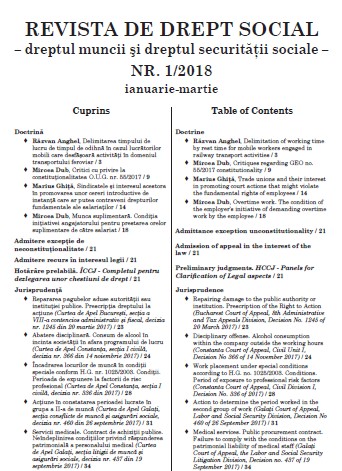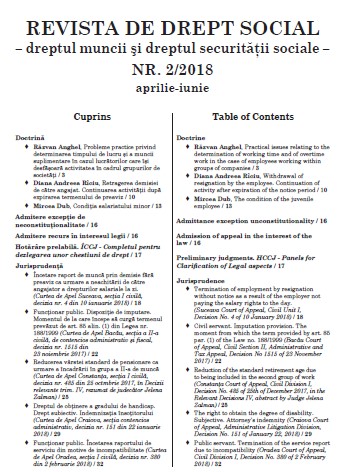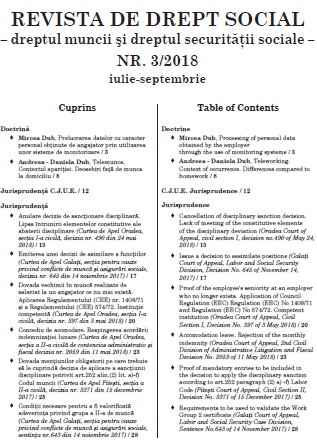
Refuzul salariatului de a semna un act adiţional la contractul individual de muncă, lipsă a abaterii disciplinare (Curtea de Apel Piteşti, secţia I civilă, decizia nr. 228 din 11 septembrie 2017, în Decizii relevante trim. III - 2017)
Refuzul salariatului de a semna un act adiţional la Contractul individual de muncă nu întruneşte elementele constitutive ale abaterii disciplinare în sensul prevăzut de art.247 alin.(2) din Codul muncii, deoarece aceasta reprezintă manifestarea de voinţă exprimată în mod liber în legătură cu elementele raportului juridic de muncă.
More...

